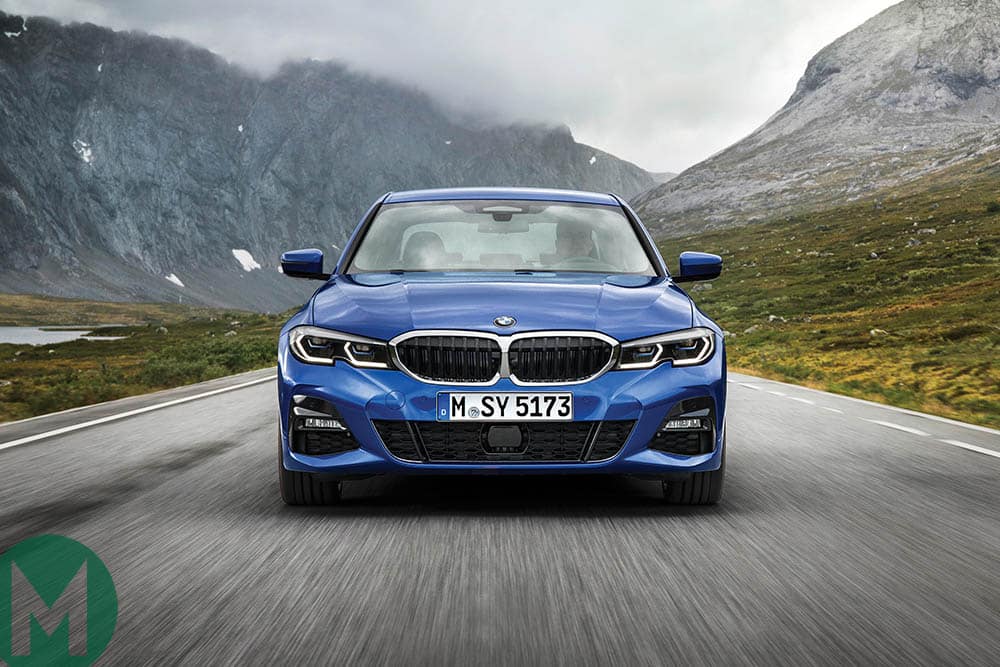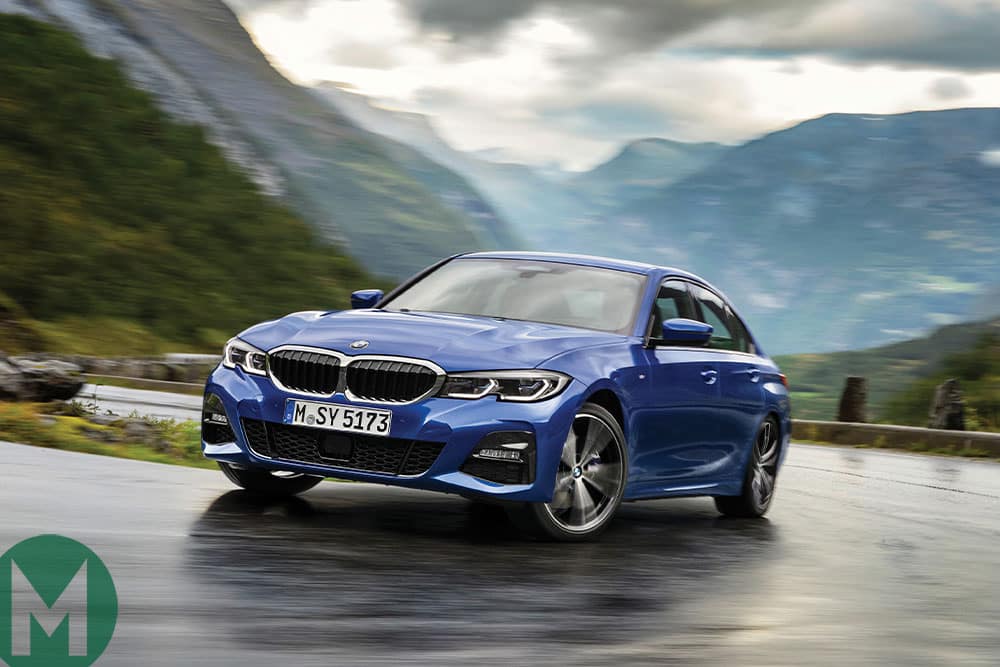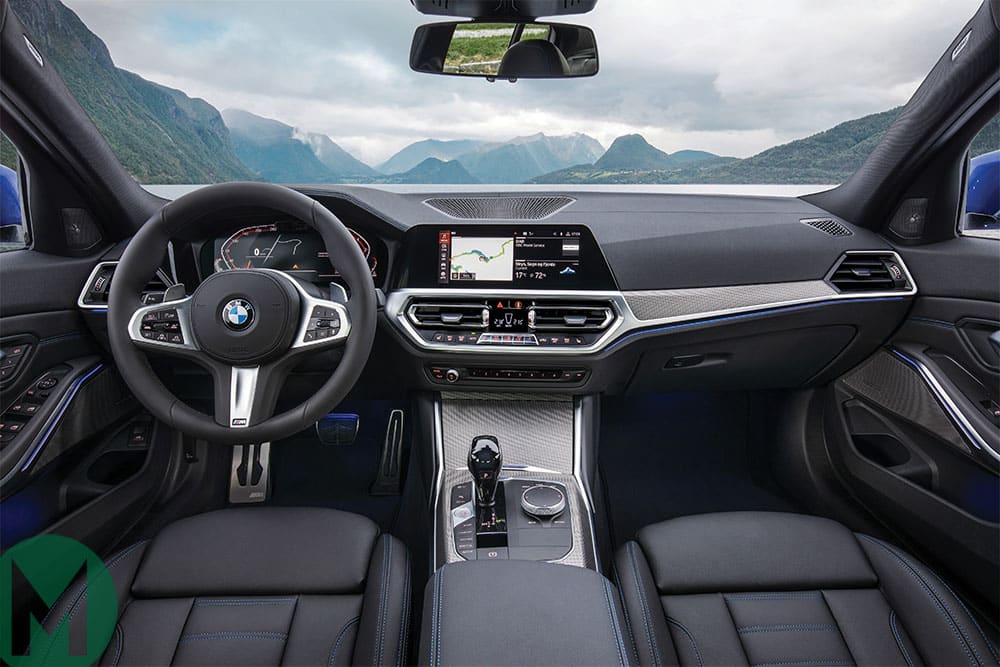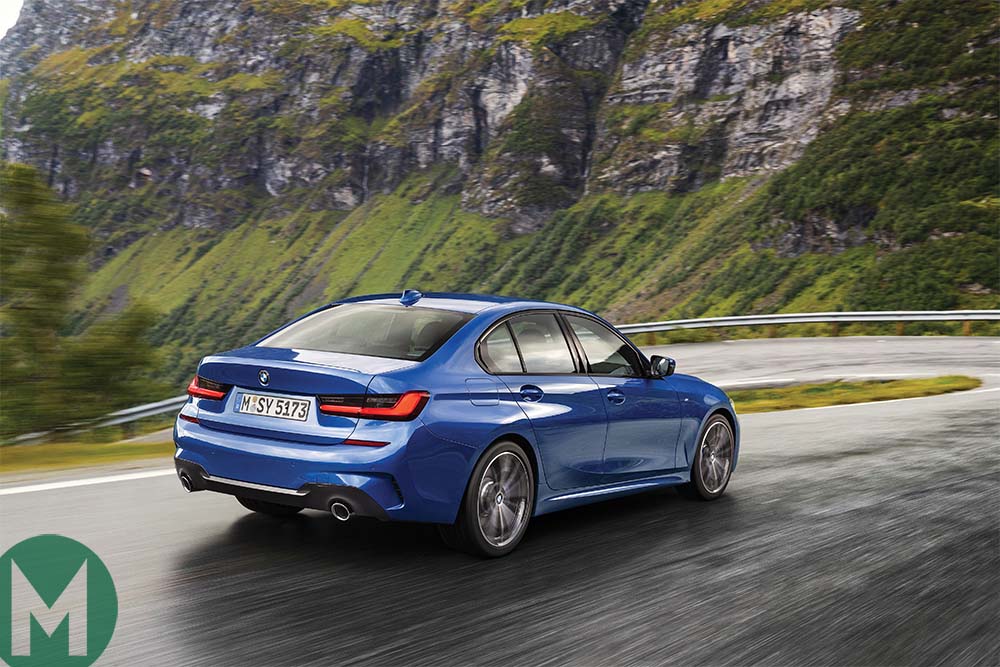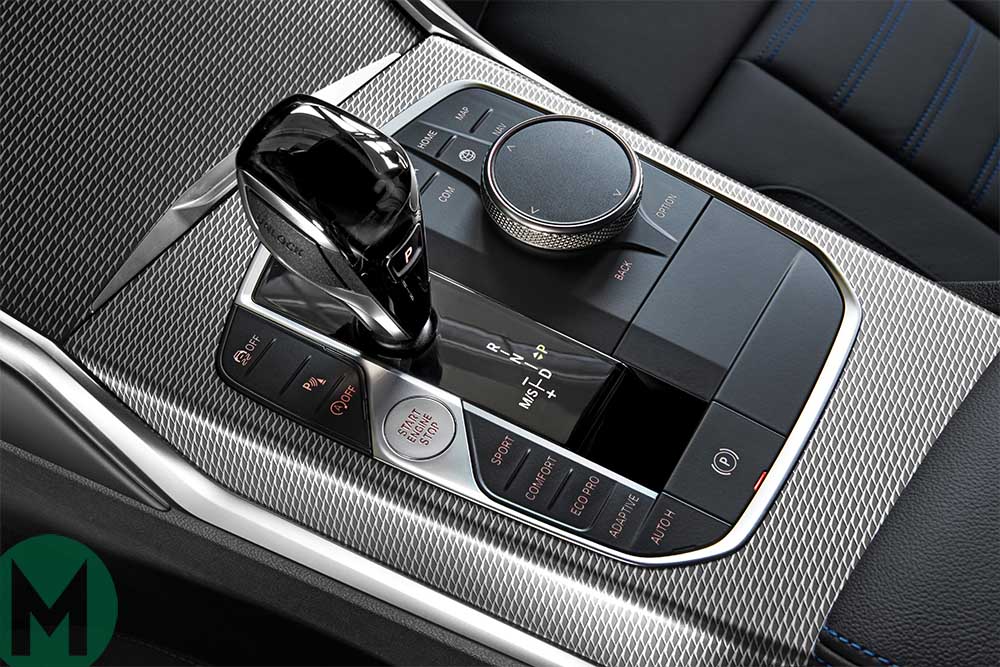BMW 320d Sport review: buried treasure
BMW is in the middle of the greatest product offensive in its history. Six months either side of right now it either has – or will have – launched a new X2, X4, X5 and X7, a Z4 and the 8-series. But among all these SUVs and sports cars, there is another that in terms of its sales, and importance to how BMW is perceived around the world, is probably most important of all. Saloons and estates might be surrendering ground to the relentless rush of SUVs, but the launch of an all-new 3-series is still a crucially important date, not just in BMW’s diary, but those of all other brands that for more than 40 years have tried and hitherto failed to eclipse it.
As tends to be the way these days, the new car has grown in every significant direction – though as much of that is taken up with new crash structures, don’t expect there to be a commensurate improvement in interior space. There is more headroom front and rear and a touch more rear legroom, but this is still a cosy car for four, and luggage space remains unchanged.
It looks pretty similar, too, disappointingly so in my view, until you park it next to the current car and realise that while the design language is the same, the details are very different. Inside, however, you’ll never mistake it for the older car. In the modern idiom, gauges have been replaced by high-definition screens, notable in particular for a completely fresh design for the instruments. It takes a little acclimatisation and I was still getting used to it after a couple of hours at the wheel, but there should be no surprise in that given the frankly bamboozling level of information and options such cars now provide.
Two models are available from launch – this 187bhp 320d diesel and a 254bhp 330i petrol. Confusingly, both cars are powered by unrelated 2-litre, four-cylinder turbo engines. The 320d has no more power or torque than the car it replaces, but because it is more aerodynamically efficient and 55kg lighter despite its additional size, it is slightly but significantly quicker in terms of both acceleration and top speed.
So far, so good. Head out onto the road, however, and the 3-series has a surprise waiting for you, and not everyone is going to like it. The Sport version I drove has 18in wheels as standard, but does without the firmer springing of the top-of-the-range M Sport model. Even so, it’s not just the structure that’s stiffer than that of the outgoing car, its suspension is too, by 20 per cent. And that’s something you’re going to notice immediately.
I’d not call the ride harsh, but it’s certainly firm and courageously so for a car that, despite all BMW’s sporting aspirations, is going to spend most of its time sat on motorways or commuting into towns. It made me wonder whether the adaptive suspension currently only selectable on M Sport models should become a more widely available option. It allows not only a Sport mode, but has a dedicated ‘Comfort’ setting too, I’ve tried it on other BMWs and it works.
That said, if you like a car that feels properly planted on the road, the 320d is very interesting indeed, providing clearer differentiation in set-up approach relative to rival Audis and Mercedes-Benzes than in any previous generation I can recall. And while you could argue the toss all day long over which side of acceptable the ride quality consequently falls, no one’s going to doubt the effect this has on the car’s handling.
For a four-door saloon, the new 3-series is improbably capable on a decent road. All cars like this grip hard and handle securely, but I doubt any of those you can buy new today are as deft and offer such steely body control. And while I’d prefer more steering feel, it’s a car you can get into for the first time and drive quickly and confidently from the outset. It made me want to hang back or even park up and wait for a gap in the traffic, just as I used to in 3-series models from many generations ago.
It felt more like a BMW than any standard BMW I’ve driven in a while, and in these days of timid design and incremental engineering, such a bold step is to be applauded. Over the last few years Mercedes-Benz, Alfa Romeo and Jaguar have all had convincing stabs at beating the 3-series at its own game and, at least in this regard, BMW has put clear air between it and its rivals once more.
Whether this diesel motor will continue to be the weapon au choix for the majority of the next generation of 3-series drivers remains to be seen. Although none is available from launch, a hybrid 330e is not far away and the increasingly hostile environment in which diesel rightly or wrongly now exists (entirely wrongly in my view) means customers will be increasingly tempted towards the alternatives.
But before you abandon the black pump altogether, might I remind you what you’re passing up? Even under stricter, more realistic WLTP means of measurement, the 320d does a claimed 62.8mpg, which means a real-world 55mpg should be easily achieved. This in a car that hits 62mph from rest in 6.8sec, with the optional automatic gearbox most will choose, and won’t stop pulling until it’s doing 150mph. So even with a small 13-gallon tank, it should cover more than 600 miles before the reserve light blinks on. And though the motor is a little rattly at rest, once you’re up to speed you’d really never know there was a diesel under the bonnet.
In other respects the 320d is entirely predictable: probably its greatest technological leap is the advance of voice recognition to the point where BMW feels it can call it an ‘Intelligent Personal Assistant’. You don’t even need to press a button: just say ‘Hey BMW’ and it will wake up, whereupon you can ask it for anything from a touch more cabin temperature to the meaning of life, so long as you’re prepared for it not always to have the answers.
This, then, is a car that in its design and technology takes a huge leap towards the future while, philosophically, taking a smaller but probably more significant step back to a time when BMWs more frequently lived up to their ‘Ultimate Driving Machine’ moniker. Not everyone will appreciate its no-nonsense approach to the open road, but in an era where every new generation of car becomes more formulaic and less distinct than the last, I welcome the fact that even this mid-range diesel is a 3-series of real character once more. It bodes well for the more sporting versions yet to come and, in particular, the new M3 that should be with us in 2020.
It has been too long since BMW last produced an M3 worthy of the badge and, while execution is all, I’d say it has built the most promising platform for such a car in years.
FACT FILE
Price £34,750 Engine 2.0 litres, 4 cylinders, turbocharged Power 187bhp@4000rpm Torque 295lb ft@1750rpm Weight 1525kg Power to weight 123bhp per tonne Transmission six-speed manual, rear-wheel drive 0-60mph 7.1sec Top speed 150mph Economy 64.2mpg CO2 115g/km
